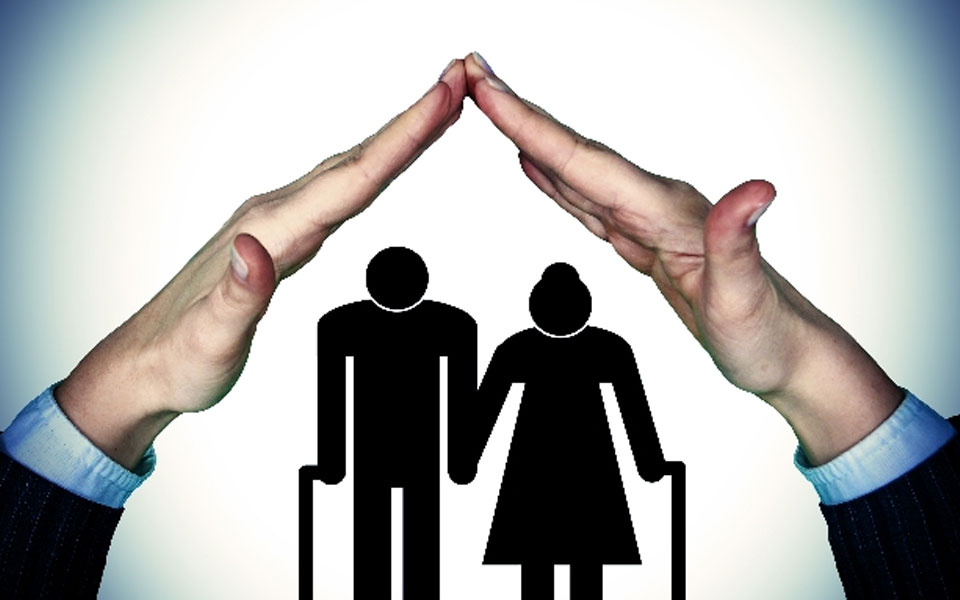The union government is planning to bring out an act on Maintenance and Welfare of Parents and Senior Citizens (2007) aimed at serving the elderly live in self-respect and peace. The government is also contemplating on penalizing children of senior citizens who do not offer care and support to them. They may have to face a jail term of three months to six months if they fail to meet the needs of their aging parents. The government is also willing to review the amount of contribution of Rs 10,000 to be made towards the expenses the parents would incur for their living. The law is awaiting the cabinet approval on this act that is a reflection of the weakening family system in the country.
The relationship of parents and children is bound by umbilical cord which is beyond the regulations of a law. No law tells the mother to feed her child. No mother takes care of the child for the fear of law. They do this because they love their children without any selfish motives. Even animals and birds protect their children.
In a country like ours, the family structure is based on such bonds and emotions. Ours was a country once known for joint family system. It also had a fair share of negatives too. There were hardly any situations where people would be brought to streets because one member wasn’t self sufficient or wasn’t able to support himself. The ancient root and the new sprouts would live together in one space. Now these families have broken down to smaller units. Yet parents living with children or one of their sons and daughters is not an unusual thing. And children have to take care of their parents the way they cared for them when they were small. This is not a favour they are doing to their parents, but a duty and a value one has to associate with the structure of the family. We cannot expect to have a sweet harvest by sowing seeds of bitter fruits.
More than this, the current generation has to change its opinion about its parents that they are ‘useless’ people living in the house. As is the root, so is the tree. If we do not see this truth, we may be in for a rude shock because this is exactly what our children will do to us in case of the inevitability of us getting old. If we are savouring the fruits of good economy and technology breakthroughs today, it is the result of the sacrifices our parents made for us. And throwing them out on the streets is to commit a heinous crime of turning back on our duty. They have the right to live with self respect as much as we do. And even senior citizens should overcome the inferiority and negative thoughts about themselves and their condition in case their children abandon them. In the event of them being thrown out on the road, the chances of them going to the court against their own children seeking justice, and being alive by the time they get a verdict – would be a rarest of rare occurrence. In the recent times, one aged couple went to court seeking mercy killing because their children had abandoned them. This is a stark and cruel reflection of what’s in the store for days to come.
Any act may not fully serve justice to the parents if they are wronged by their children. A son who does not care for his parents may not get his punishment only on the form of his time in the prison, but he may actually be abandoned by his own children as a poetic justice! With the increase in old age homes, senior citizens may be living a life with dignity. But they still remain the epitome of breakdown of human relationships. Men and women have to care for their parents without being told. This way, the new legislation the central government is going to enact is a highly appropriate and timely one. The society and government have to contemplate on ways of holding up the collapsing societal norms. The cracks in the relationships have to be filled with love, and if it becomes inevitable, a law should step in to do that job too.
Let the Truth be known. If you read VB and like VB, please be a VB Supporter and Help us deliver the Truth to one and all.
Kalaburagi: Four men have been arrested in Kalaburagi on charge of hacking a man with lethal weapons and pelting stones at him under the limits of Station Bazaar Police Station recently.
According to police sources, Anand Jalak Shinde (34), Ashitosh Jalak Shinde (30), Imran Mehboob Sheikh (28) and Sohaib Anwar Qureshi have been arrested. The men are accused of the brutal murder of Syed Mehboob, a resident of Station Bazaar Upper Line Hamalawadi in the city.
An FIR was filed by the Station Bazaar Police Station based on a complaint given by Syed Ismail, father of the deceased Syed Mehboob.
Following quick probe, the police team successfully arrested the suspects within 24 hours. The arrested men were produced in court and have been sent to judicial custody.
The City Police Commissionerate has appreciated in an official release the police team’s quick solving of the murder case and arrest of the four men accused of murdering Syed Mehboob.





